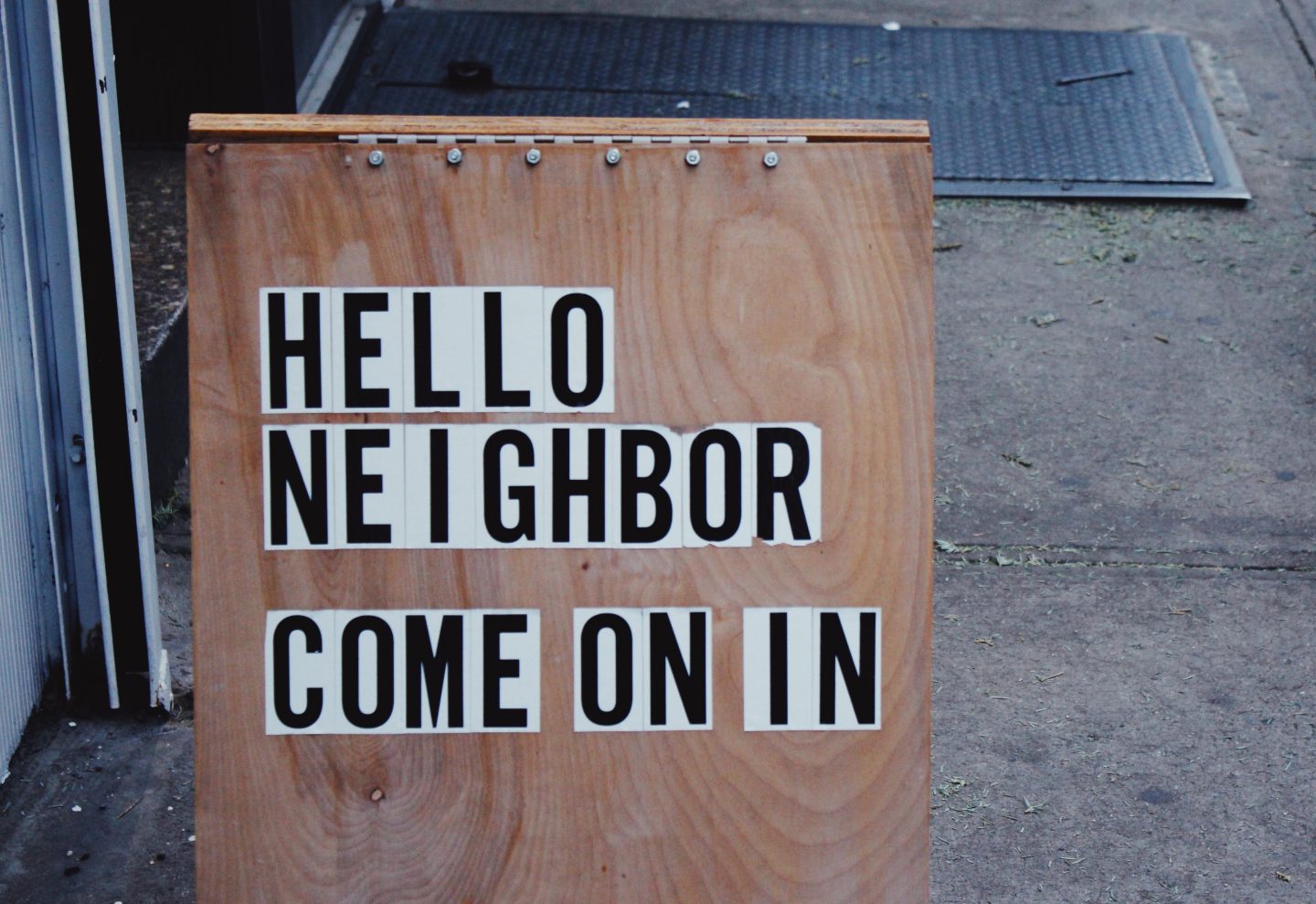
Photo by Jon Tyson on Unsplash.
To the people of ancient Israel, God’s house was an image that shaped the way they saw everything. In the minds of ancient Israelites, the house of God was the center of the world.
As strange as this might sound to our ears, to their ears, the modern notion of the separation between heaven and earth would have seemed strange and wrong.
God’s was a house reaching from the heavens to the liminal, tangible places on earth where God caused his name to be remembered. God’s house was seen in experiences like Jacob’s: “Surely the Lord is in this place, and I was not aware of it.”(Genesis 28:16)
Not long after God called the people of Israel his own, God instructed them specifically on the treatment of others.
It was experienced in the tabernacle that once moved among them as pilgrims, and later in their pilgrimages to the temple. Ever-expanding their vision of God’s house, altars were built over the places where God had appeared to them, marking the reach of its walls.
Though at times as prodigals, their longing for home was a part of their identity as children of the house of God: “One thing I ask of the LORD, this is what I seek: that I may dwell in the house of the LORD all the days of my life, to gaze upon the beauty of the LORD and to seek him in his temple.” (Psalm 27:4)
In the imagination of the Israelite, the house of God as it reached from heaven to earth was occupied by the Creator.
As the people of God, they had been invited inside and they longed to remain. They longed for the healing embrace of home.
Stepping over dividing lines
As with any group with a clear vision of inside and outside, belonging and not belonging, the Israelite’s understanding of the house of God could have easily become the very rationale for excluding foreigners, neighbours and outsiders.
Curtains that divided us — race and gender, wealth and status, the veil between heaven and earth — all have come down.
Yet not long after God had called the people of Israel his own, God instructed them very specifically on the treatment of such people:
“Do not oppress an alien; you yourselves know how it feels to be aliens, because you were aliens in Egypt.” (Exodus 23:9)
“The alien living with you must be treated as one of your native-born. Love him as yourself, for you were aliens in Egypt. I am the LORD your God.” (Leviticus 19:33-34)
The house of God was to be a house of hospitality, for such a spirit reflected the very God within it: “For the LORD your God is God of gods and Lord of lords, the great God, mighty and awesome, who shows no partiality and accepts no bribes. He defends the cause of the fatherless and the widow, and loves the alien, giving him food and clothing. And you are to love those who are aliens, for you yourselves were aliens in Egypt.” (Deuteronomy 10:17-19)
Called to ever-remember their own status as foreigners, the people who were invited into the care of God’s house were to become a sign of that care themselves.
Children of the promise
Followers of Christ are invited to lean into this same house envisioned throughout Israel’s history with this welcoming caveat of good news: Any curtains that still divided us in this home – divisions of race and gender, wealth and status, barriers of death and sin and suffering, the veil between heaven and earth – all have come down once and for all.
Hospitality is both a gift and a posture of the resurrected one we embrace.
The death of Jesus Christ somehow picked a fight with these things, with death itself and the suspicion that we are left to suffer alone.
The resurrection of Jesus declared a new winner. Thus, his resurrection is not a promise for a later time, another world, another house, but rather this house, God’s house, this life, now.
Because of Christ, hospitality in this house takes on even greater dimension and brighter mystery. “Do not forget to entertain strangers, for by so doing some people have entertained angels without knowing it. Remember those in prison as if you were their fellow prisoners, and those who are mistreated as if you yourselves were suffering.
Such commands to “practice hospitality”, “to entertain strangers”, “to care for the poor, the widows, the suffering”, and to “remember the least of these” — all of these are invitations to step further into all that the resurrection said and did, and says and does now through us. (Hebrews 13:2-3; Romans 12:13; 1 Peter 4:9-10)
For those who know the ever-expanding rooms of God’s house, hospitality is both a gift and a posture of the resurrected one we embrace. Along with the one who has welcomed us inside, we too are compelled to go out “into the streets and alleys of the town and bring in the poor, the crippled, the blind and the lame.”
The master of the house has prepared a feast for the hungry and longs for the tables to be filled: “Go out to the roads and country lanes and make them come in, so that my house will be full.” (Luke 14:15-23)
While images appear daily of people suffering, struggling in fear, crushed by disease and financial downfall, there are at the same time those who open their homes and communities by responding with food and care.
Lights will guide you home
Hospitality is given in places where distress and isolation offer no rest.
Images of the house of God appear even today with its real and healing dimensions.
Recently, a story emerged of the Irish reaching out to care for two Native American tribes heavily stricken by Covid-19, repaying a kindness offered to them during the potato famine of 1845.
Not long after their own suffering through the Trail of Tears, the Choctaw Nation donated $170 to Ireland for famine relief. In honour of that kindness, the Irish have now raised over $1.8 million in relief funds for the Navajo and Hopi Nations.
In these unlikely places, images of the house of God appear even today, startling us and other observers once again with its real and healing dimensions.
Surprising us with its reach and calling us to hospitality, the house of God is occupied by one whose life, death, and resurrection prepares a place for both the least and the last, insiders and outsiders, neighbours and enemies all around us.
“Christ is faithful as a son over God’s house. And we are his house if we hold on to our courage and the hope of which we boast.” (Hebrews 3:5-7)
Whether prodigals or pilgrims, in this house we discover the God who welcomes the multitudes home.
This article was first published on A Slice of Infinity, a ministry of Ravi Zacharias International Ministries and has been republished with permission.
Reflection and Discussion
- What does “home” and “hospitality” mean to you?
- Can you recall an instance when you were shown hospitality? How did that affect you?
- Who are the “strangers” around you today? How might you bless them?
“It was a miracle”: Dr Cynthia Goh on the chain of goodness that led Bangladeshi worker home
We are an independent, non-profit organisation that relies on the generosity of our readers, such as yourself, to continue serving the kingdom. Every dollar donated goes directly back into our editorial coverage.
Would you consider partnering with us in our kingdom work by supporting us financially, either as a one-off donation, or a recurring pledge?
Support Salt&Light



